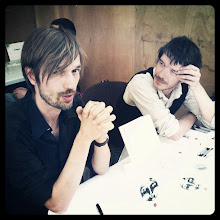L'une des erreurs que commet l'Europe, cet indispensable instrument de paix né de la seconde catastrophe mondiale, c'est d'avancer paradoxalement, en niant la mémoire des nations qui la composent. La première fois que je m'en suis rendu compte, ce fut au moment du passage à l'euro. Les monnaies nationales disparaissaient sans que soit posée la question de leur mémoire. Or chacune était assortie d'un imaginaire très fort, d'un passé souvent très ancien. Ce changement fut sans doute vécu comme une violence informulée par beaucoup de gens, un acte administratif glacial. La mémoire de mon pays fait partie de mon identité ; elle me constitue.
Enfant, je n'ai jamais aussi bien voyagé qu'en pesant un shilling, une pièce de 100 lires, ou en prononçant le mot pesetas. Ce petit rond de métal, ce mot qui le représente, ont une valeur synecdotique. En supprimant le mot, c'est le pays tout entier que l'on supprime !
C'est pourquoi j'ai toujours regretté que l'euro, ce mot idiot et laid car sans mémoire, ne soit pas réservé au taux monétaire lui-même, ce qui aurait permis aux nations de conserver dans un premier temps, ce petit bout d'eux-mêmes qu'est le nom de leur monnaie, tout en vivant de façon concrète l'Europe. Idem pour les frontières : leur disparition, alors que leur mémoire n'est ni suscitée, ni entretenue, participe du repli que l'on observe partout. Pour que vive l'Europe, cet outil de mémoire agissante, il faut que l'Europe se souvienne que les nations qui la constituent sont elles-mêmes d'énormes blocs de mémoire partagée.



